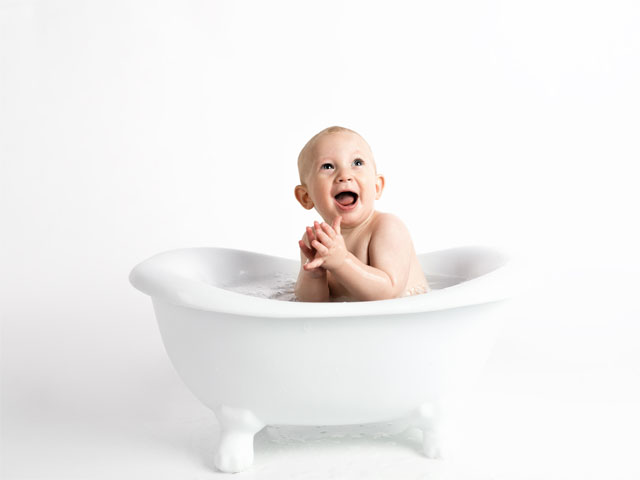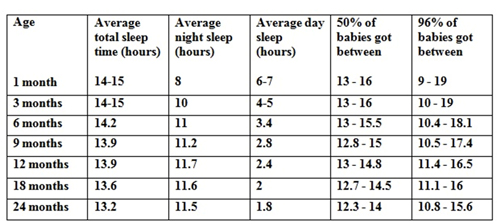Cheryl Fingleson The Sleep Coach Interview

Cheryl Fingleson The Sleep Coach Interview
Cheryl completed The Gentle Sleep Coach Program, the first and most extensive professional sleep coaching certification program available. The program involves over 80 hours of training, an exam and participation in case supervision with Kim West, LCSW-C (a.k.a. "the Sleep Lady") who has been helping tired parents for over 17 years. Clinical supervision and ongoing advanced training are required to maintain certification as a Gentle Sleep Coach.
Cheryl also completed an exclusive advanced training series directly centered around how to gently work with babies 4 and 5 months of age. This program consists of over 40 hours of instruction and mentorship.
Cheryl has also recently completed:
The Clinical Psychology of Children and Young people
University of Edinburgh
Infant Mental Health
Community Training Institute
Public Health University of Canada
Cheryl works with families across a range of areas, including settling and sleep techniques, establishing a good routine, discipline in the home, transition from cot to bed, potty training, safe co-sleeping, and identifying signs of post-natal depression. Cheryl wants parents to know that they don't have to feel like they're struggling through the journey on their own, and can get help from a trained professional.
Cheryl is available for home visits and Skype consultations.
www.thesleepcoach.com.au
Interview with Cheryl Fingleson
Question: What is a sleep consultant?
Cheryl Fingleson: A sleep consultant will give you professional advice, a personalized gentle sleep plan that will be designed for your babies temperament and take into consideration your family's individual dynamics.
You are given all the correct information without having to surf the net or read through the 20,000 baby books on Amazon which often leave you more confused as to which is the best sleep technique for your baby or toddler.
Question: What inspired the creation of The Sleep Coach?
Cheryl Fingleson: I saw the impact sleep deprivation had on parents especially mothers. My love for babies and my passion to help in such an important part of parenting. Sleep is a learnt skill.
Question: Is there a way to co-sleep, safely?
Cheryl Fingleson: It is essential to have a firm mattress that fits snuggly on the base, so your child doesn't fall in between the gaps.
A waterbed is not safe to co-sleep on, as it is too soft and may have deep crevices.
It is best not to use a duvet, use lightweight covers if you co-sleep with a baby under a year. We want your child to keep cool and prevent suffocation or overheating This risk is highest during his first three months of his life, it is advisable to often to sure the covers/blanket/swaddle has covered your babies head.
It is advisable that the carer DOESN"T co-sleep if very tired or has a sleep disorder, such as sleep apnoea, sleep in these cases are deeper and may roll onto your baby without waking.
When co-sleep it is best to tie up long hair as the infant could get their neck tangled in the loose long hair.
It has been proven that co-sleeping when you are on sedatives, medications or drugs, or intoxicated from alcohol and/or other substances, it is extremely difficult to arouse easily from sleep, therefore it is definitely not safe.
When placing a baby in bed with a person, it is necessary to wake the person fully, so they are aware there is a baby now in bed with them.
Question: At what age will children begin to have night terrors?
Cheryl Fingleson: They usually happen in pre-school and primary school aged children.
Night terrors are very dramatic awakenings that happen during the night in the first few hours of sleep. They are very distressing to watch as your child seems very upset and can't be consoled. About five children in every 100 will have night terrors.
Question: How can parents dealt with night terrors?
Cheryl Fingleson: Have a good regular routine with a consistent bedtime preventing your child getting overtired.
It is important for parents to know that night terrors do not have a long-term effects on your child most children will outgrow them.
Night terrors are frightening to witness, when your child is asleep. They will not remember anything about the episode in the morning.
It is important to keep your child's room safe with no object around that they can step, trip or fall on and hurt themselves.
Stay calm and don't touch your child unless they are going to hurt themselves. Efforts to settle or help your child often make the episode longer and worse.
It is preferable not to talk about the night terrors the next day. It is best to make as little fuss as possible about the night terror as to prevent anxiety about going to bed.
Night terrors are a part of normal development and happen in a minority of healthy children.
Question: Can you talk us through how much sleep is required and the cycles throughout the first year of age?
Cheryl Fingleson: When it's dark, children's bodies produce growth hormone. This is one of the reasons why young children spend so much time sleeping – their bodies and brains have so much growing to do.
There are some babies and children who fall into a deep sleep very quickly. Others sleep lightly, fidgeting and muttering for up to 20 minutes, before getting into deep sleep.
Children usually wake briefly at the end of each sleep cycle. This is a normal part of healthy sleep. If your child has a sleep crutch you will find they will call out when they wake and need help to re-settle, if you have a child that can self settle they will go back to sleep.
The type or amount of time we spend in each cycle varies depending on age. Cycles of deep and light sleep last 30-50 minutes in babies
-deep sleep, also called non-rapid eye movement (NREM) sleep.
Light sleep, sometimes you might not even realise you're asleep. You can wake easily from light sleep. Light sleep is when you dream.
 Deep sleep is a lot more peaceful and restful. Deep sleep is the time when we grow and heal. Someone in deep sleep is hard to wake up and might feel quite drowsy when they do wake up.
Deep sleep is a lot more peaceful and restful. Deep sleep is the time when we grow and heal. Someone in deep sleep is hard to wake up and might feel quite drowsy when they do wake up. Schedule of different age groups:
Question: How can we treat and calm babies who are teething?
Cheryl Fingleson: Using a special teething soother in the fridge or well chilled damp cloth for your baby's gums. Teething babies love pressure on their gums, your clean finger can relieve pain with a little pressure and rubbing.
Many parents believe amber necklaces or bracelets can help relieve teething pain. The theory is that a tiny amount of oil is released on to your baby's skin when the jewellery is worn. This oil is said to ease discomfort, but, again, there isn't any medical evidence to support these claims. Safety is imperative
Over the counter numbing gels and creams rubbed on the gums can relieve the pain. Food and Drug Administration (FDA) warns that topical medications containing benzocaine shouldn't be used on children under 2 without guidance from a doctor.
If pain killers are required for relief of teething pain because nothing else is helping. Confirm with your doctor about the 'cover the counter' painkiller and confirm the dosage especially for children under 6 months.
There are parents that swear by homeopathic teething drops and tablets. (A homeopathic remedy is a highly diluted form of a substance that is known to cause the symptoms you're trying to cure. The idea is that a tiny or even imperceptible amount of an active substance – which could be toxic at higher levels -- would stimulate healing.)
Before using a homeopathic remedy, discuss it with your child's doctor.
Question: How important is creating a relaxed sleeping environment?
Cheryl Fingleson: The bedroom should be a sanctuary for children and adults alike, a restful night sleep forms a good foundation for the day ahead.
It has been proven that sleep is vital for growth and health, it is as important as water and food.
When babies and toddlers have good night sleep concentration, mood, behavior and appetite all improve.
My advice is creating an environment that encourages relaxation and provides better sleep.
The better one sleeps, the more it adds to the quality of life and health. It's time to think of your bedroom as a rejuvenating spa.
Question: What does The Sleep Coach provide?
Cheryl Fingleson: The professional sleep consultant will provide you with the constant support that may need in the early days and weeks that maybe needed in your gentle sleep training.
Your sleep expert will eliminate stress as she will decide which would be the best method for your baby/toddler's temperament, age and parenting philosophy.
No more questioning yourself or second guessing what is wrong or right, you have all the answers at the end of the phone.
One of the most important points to recognize that you are taking back control and this is very empowering and you gain back your confidence.
Interview by Brooke Hunter
MORE



